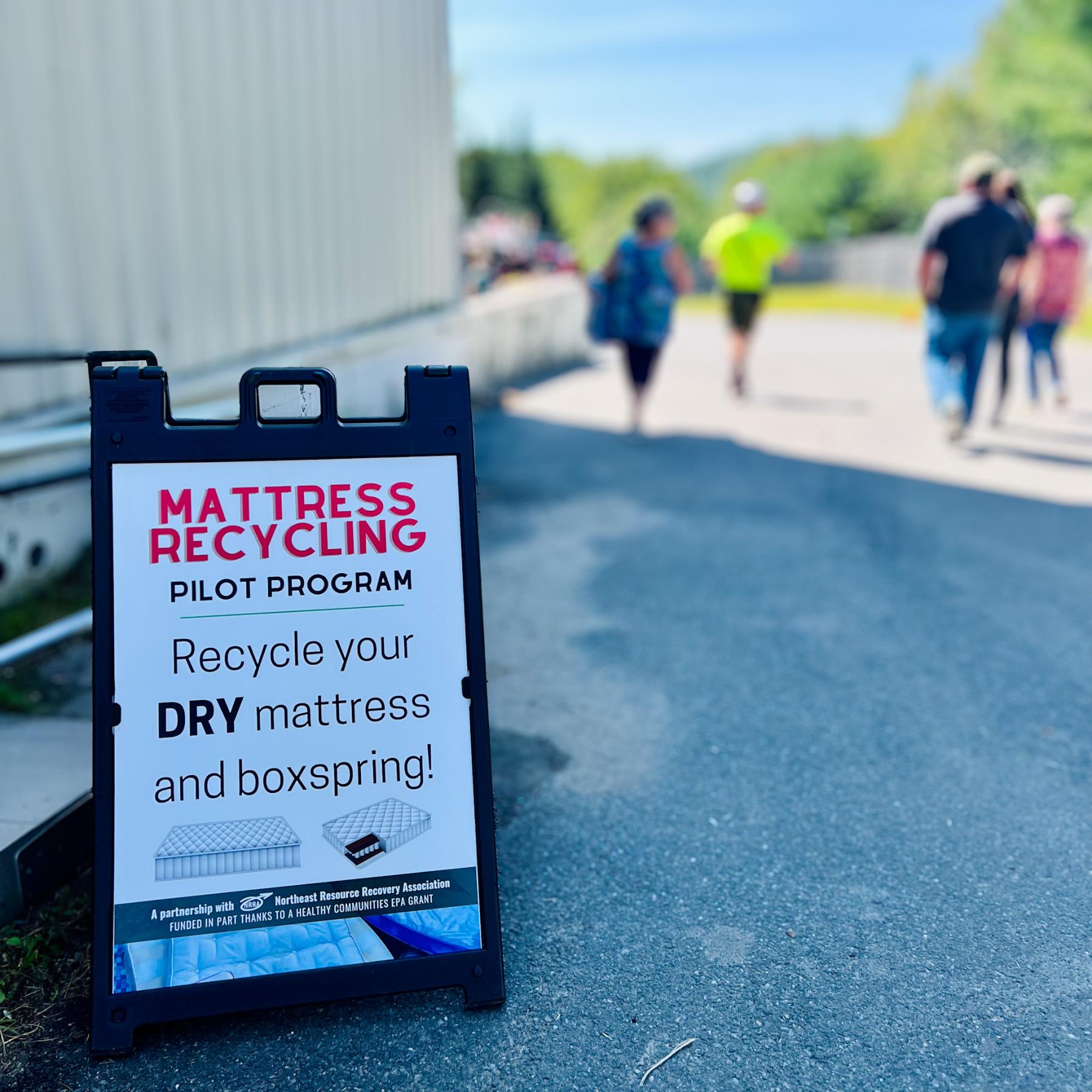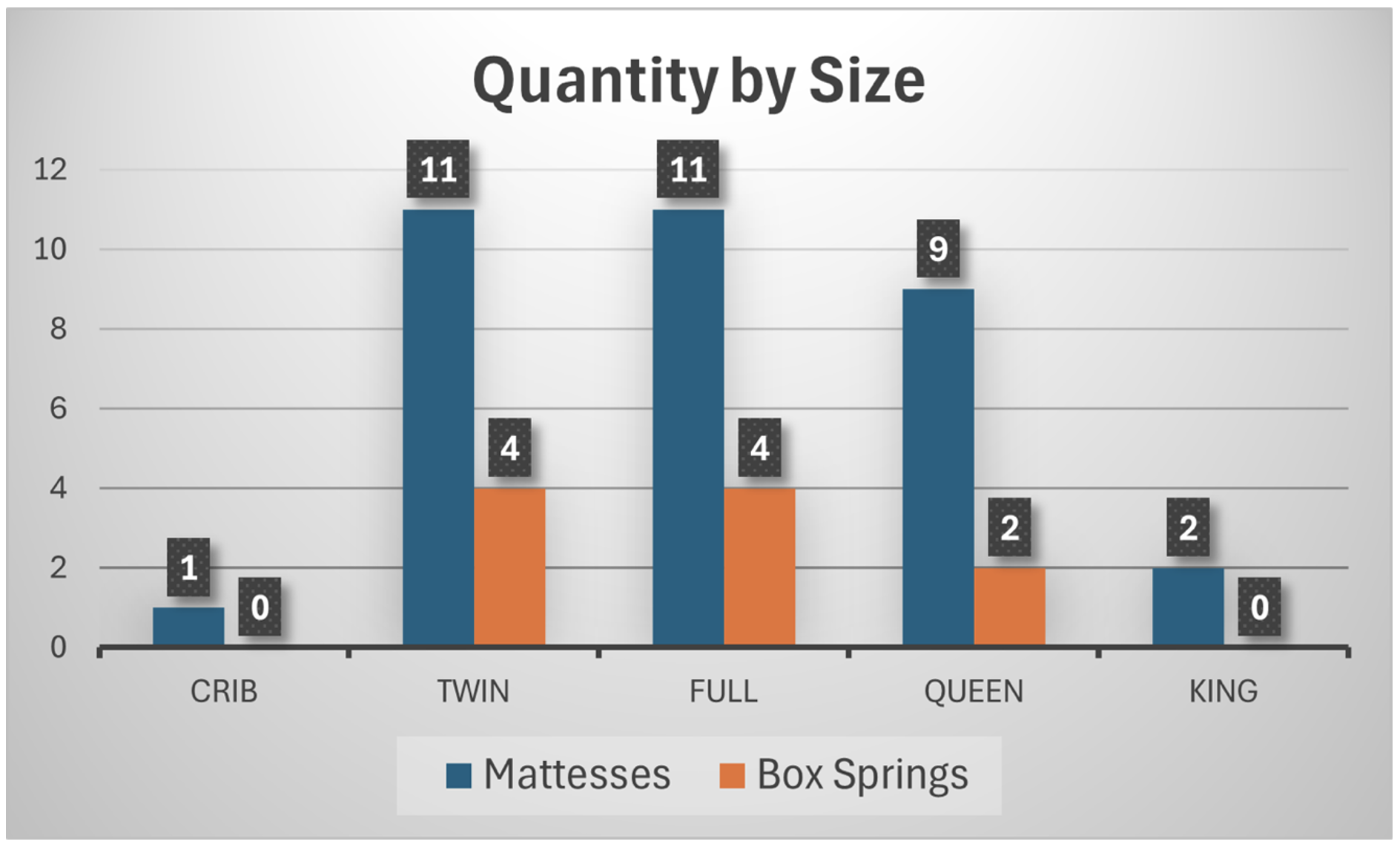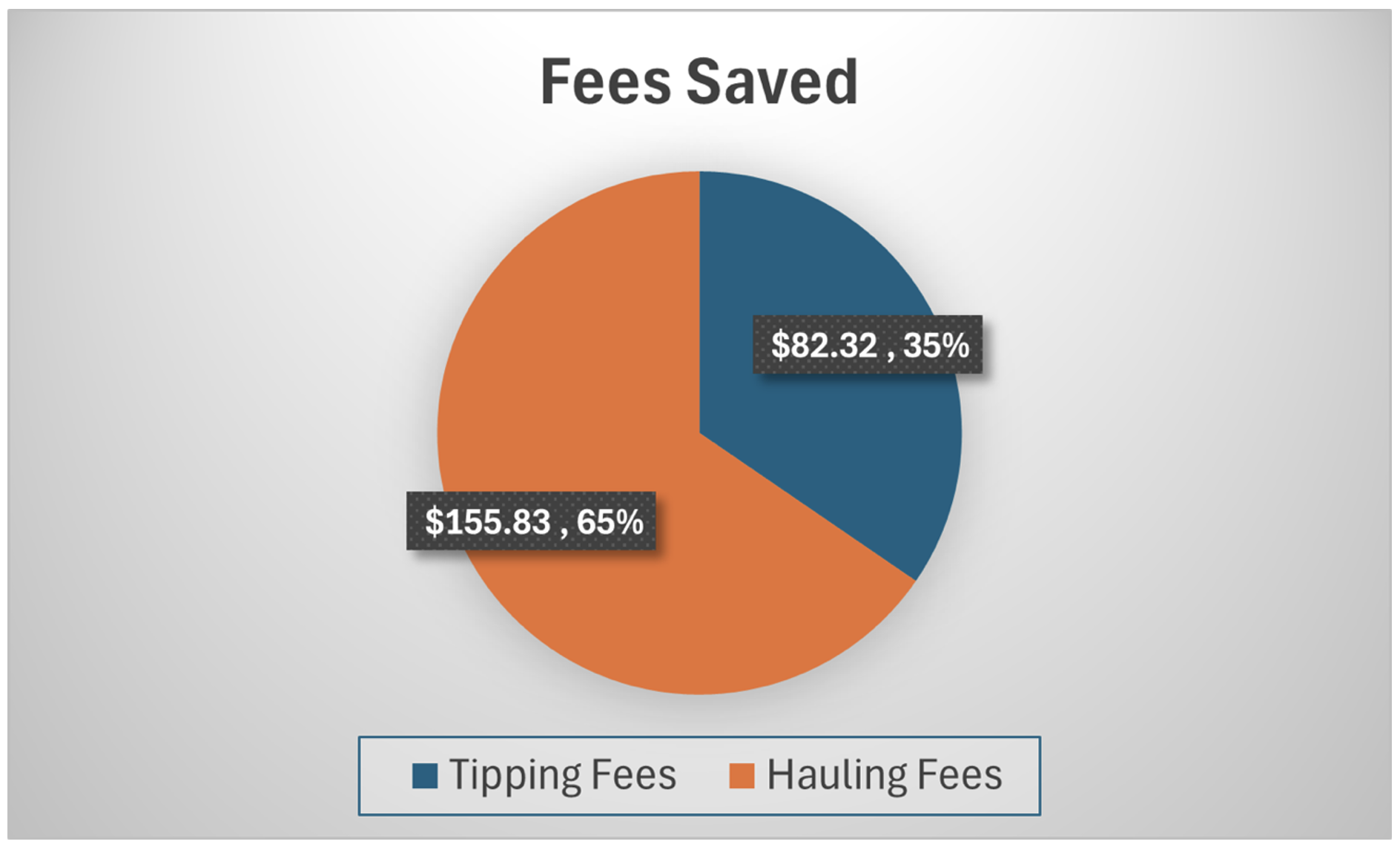Mattress Diversion Partnership Case Study
The Pemi-Baker Solid Waste District partnered with Casella Waste to provide mattress and box spring recycling to the 19 district towns plus the town of Bethlehem, NH where the Casella-owned Transfer Station and Landfill are located. The pilot program lasted from July 2nd to August 16th, 2024 with technical assistance from the Northeast Resource Recovery Association (NRRA). Of the nineteen district towns, seven are North Country towns. These towns, along with Bethlehem, represent over 25% of North Country towns and just under 29% of the North Country population.
 Casella parked a trailer at the Littleton Transfer Station free of charge. Casella then offered free pickup at each of the District Transfer Stations, with the plan to then deliver those collected mattresses via a box truck to the Littleton trailer.
Casella parked a trailer at the Littleton Transfer Station free of charge. Casella then offered free pickup at each of the District Transfer Stations, with the plan to then deliver those collected mattresses via a box truck to the Littleton trailer.
Disposal fees for the mattresses and boxsprings are being paid for by Casella through the end of 2024. While Casella offered to pick up mattresses at other District transfer stations for free, those transfer stations needed a way to store mattresses dry and under cover. Casella offered transfer stations containers for a monthly rental fee. Additionally, NRRA reached out to the Lisbon/Lyman/Landaff Transfer Station, as well as the Tri-Town Transfer Station, to assist with container purchasing or rental. At this time, none of the other transfer stations opted to participate in the mattress recycling program due to lack of covered storage, staff turnover, or other reasons.
ITEMS DIVERTED: A total of 34 mattresses and 10 box springs were recycled instead of landfilled from the Littleton Transfer Station during the pilot program period.
This equates to 1.33 items per day the Transfer Station was open to the public. Additionally, there were four items ready to be recycled, but a rainstorm passed through the area before the operators could get the mattresses under cover. Those items had to be landfilled.
In addition to the mattresses diverted from Littleton, one full tractor trailer load was hauled for recycling at the end of the reporting period, though no details about the load have been shared with NRRA to date. This load included mattresses brought into the Littleton Transfer Station from Casella, but no log was recorded as to which towns the mattresses came from. Further, some of the mattresses in the full haul were from area Transfer Stations and others were set aside at the landfill for recycling.

DISPOSAL FEES AVOIDED: The Littleton facility saw a combined disposal (aka tipping) and transportation fee savings of $238.15 over the course of the pilot program, or approximately $5.41 per item. This is based on the average container weight of 7.83 tons.
Besides the $82.32 the town saved in tipping fees on 0.98 tons, they also saved 27.3% of a C&D container – space that is usually taken up with bulky mattresses that are nearly impossible to compact instead could be filled with C&D that cannot otherwise be diverted. With mattresses diverted, the average container weight should increase as more dense material take the place of lighter, bulky mattresses.


LOOKING AHEAD: Based on the success of the pilot program, the Town of Littleton plans to continue mattress recycling for the remainder of 2024. In the following year, Casella and the Pemi-Baker Solid Waste District will determine mattress recycling options and pricing. Assuming the results for this pilot program period were extended throughout an entire year, Littleton alone could expect to divert 270 mattresses and 79 box springs at a weight of 15,500 pounds of landfilled material and save 87 cubic yards of open top space.
For the remainder of 2024, Littleton expects to save an additional $714 in avoided transportation and tipping fees for mattresses. It should be noted that prices are expected to increase if the program continues into 2025, since currently all costs are being covered by Casella.
For towns besides Littleton, the lack of dry storage is a serious concern as many facilities do not have extra storage to keep mattresses and box spring dry. These facilities would need to rent or purchase storage, which may make mattress recycling unaffordable. Further, in the Tri-Town Transfer Station’s case, there is also lack of facility space to add extra storage.
The largest mattress recycling hurdle is that it currently costs Littleton under $6 per mattress or box spring to landfill. NRRA’s research suggests that most mattress recycling companies charge upwards of $40 per unit. Because Casella owns the mattress recycling plant being used to recycle these mattresses, it may be in Casella’s best interest to offer lower mattress recycling costs, though that will be determined by the company in the following year.
This project has been funded wholly or in part by the United States Environmental Protection Agency under assistance agreement 00A01024 to Northeast Resource Recovery Association. The contents of this document do not necessarily reflect the views and policies of the EPA.
